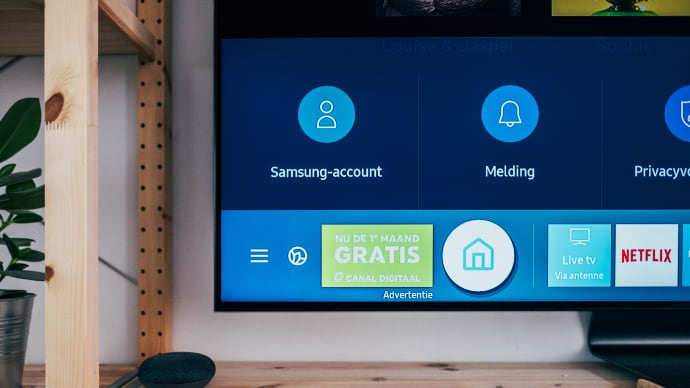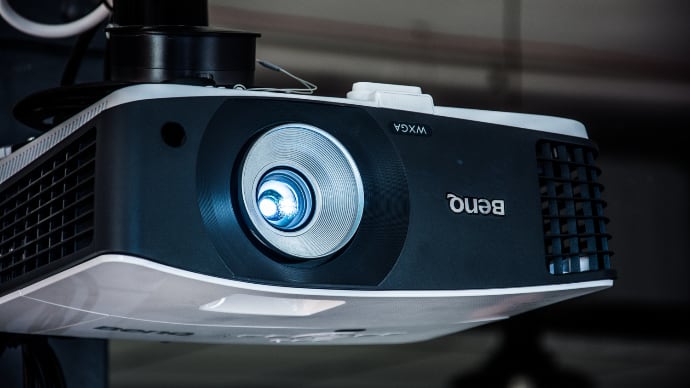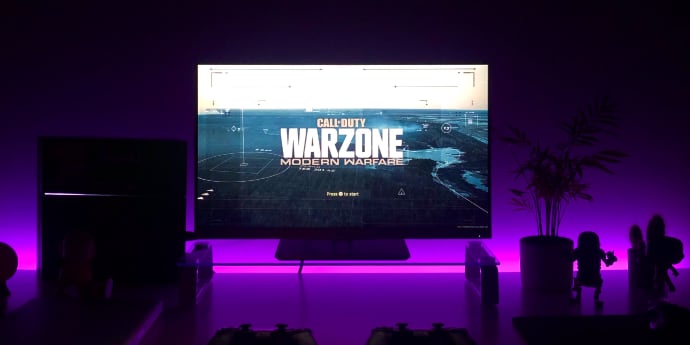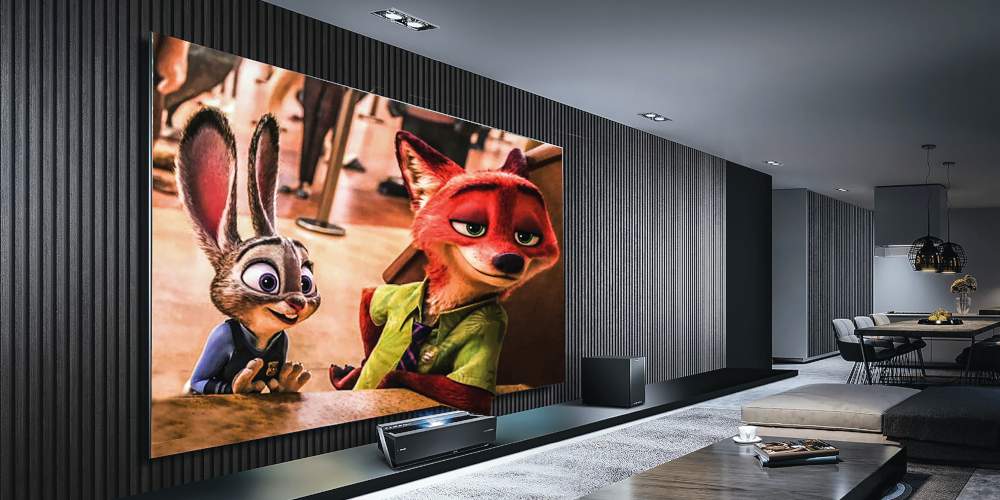Are you thinking about upgrading your home theater? Maybe you've moved into a new place with more space for a bigger screen?
While most people opt for a large TV, projectors are another way to get maximum screen size with minimal intrusion to your living space.
While TVs are getting bigger and brighter screens every year, projectors are going to get you even bigger sizes. That said, projectors aren't perfect for everyone—there are pros and cons.
Here's a rundown of the advantages and disadvantages to both TVs and projectors for your home theater media center to help you decide which one is right for you.
TV: The Pros and Cons

One of the main pros when opting for a TV is that they're easier to set up. You simply find a spot in a room, place it there, and plug in the power cord. And since most TVs these days have built-in apps for various streaming services, that's as far as you have to go.
TVs also happen to get new technologies faster. For example, 4K resolution and high dynamic range (HDR) arrived on TVs long before they appeared in consumer projectors, even though they might have been in movie theater projectors sooner.
The main con of choosing a TV as the centerpiece of your home theater is that TV screens just don't get as big as you can get with a projector. OLED TVs max out around 88 inches as of this writing, while even modestly priced projectors can easily surpass 100 inches.
At the same time, TVs take up more space in a room than projectors do, even if you're planning on wall mounting. Projectors take up very little space; if you live in a small unit, this can be a dealbreaker.
Projector: The Pros and Cons

The main reason to opt for a projector over a TV is the sheer size of the display. For example, the Sony VW325ES projector can display a 4K image that's anywhere from 60 to 300 inches large. That's much closer to a true cinema experience in your home.
And despite massive projection display sizes, you don't need much space in which to fit them. A projector mounted on the ceiling will stay mostly out of your way, and if you've got an empty white wall that you can use, you don't even need to buy a screen.
The downside is that setting up a projector isn't anywhere near as easy as setting up a TV. Mounting the projector is easy enough, and modern projectors make picture calibration fairly straightforward, but it still takes more time and effort than setting up a TV.
Projectors don't have the greatest speakers, so if you want a true home theater experience, you'll want to opt for a surround sound setup or at least get a dedicated sound bar.
Overall, a projector will cost more than a TV, so be prepared to spend more. You can get decent projectors for around $500 to $700, but the Sony projector mentioned above costs more than $5,000.
What About for Gaming?

So far, we've avoided one major elephant in the room when it comes to TVs and projectors: video gaming.
With PCs and modern consoles pushing resolutions up to 8K with HDR, choosing a display setup that makes the most of them is important if you're an avid video gamer.
TVs have a major advantage here, especially with the more recent OLED and microLED models. Since these pixels can go completely dark, TVs get better contrast in all but the darkest rooms.
Projectors are getting better, pushing more nits and improving overall contrast, but they still rely on a beam of constant light, meaning you'll never get the pure blacks of an OLED in a projector.
There's also the issue of value. You can get a whole lot of TV for $500 these days, complete with 4K resolution and HDR. A projector in the same price range will likely be limited to 1080p resolution.
There's also the issue of latency. The Game Modes in modern TVs keep getting better at cutting down on latency, improving the feel of gameplay. There are gaming-specific projectors with reduced latency, but you'll have to shell out even more money for one.
For video gamers, it comes down to this: if you're strapped with a tight budget, a TV will get you the best gaming experience for your dollar; if money is no object, a top-end projector can be fantastic.
Punch Up Your Home Media Setup
No matter what your choice may be, once you've got your fancy new projector or TV, you'll want to put it through its paces. If you're not sure what to watch, consult our list of the best 4K HDR movies.
For most people, a TV will likely be your best bet. They're easier to set up and use, and in many cases a TV will be cheaper than a comparable projector. There's nothing wrong with a TV!
That said, projectors are coming down in price and gaining in features all the time. Plus, they're still the only way to go if you want the biggest possible screen for the truest home theater experience.

